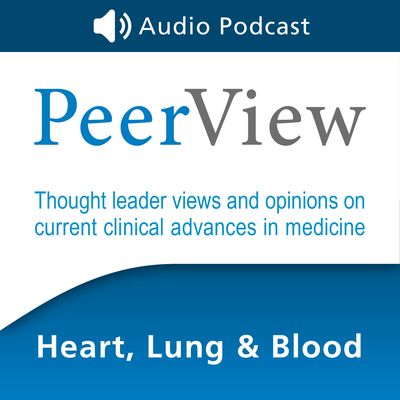PeerView (PVI) is a leading provider of high-quality, innovative continuing education (CME/CE/CPE and MOC) for clinicians and their interprofessional teams. Combining evidence-based medicine and instructional expertise, PeerView activities improve the knowledge, skills, and strategies that support clinical performance and patient outcomes. PeerView makes its educational programming and expert-led presentations and symposia available through its network of popular podcast channels to support specific specialties and conditions. Each episode includes a link to request CME/CE credit for participation. PeerView is solely responsible for the selection of topics, the preparation of editorial content, and the distribution of all materials it publishes.
http://ww2.peerview.com
Naval Daver, MD / Harry P. Erba, MD, PhD / Tara Lin, MD / Gail J. Roboz, MD -How I Think, How I Treat in the New Age of AML Care: Personal Perspectives on New Evidence and Innovative Therapeutics
Go online to PeerView.com/CHU860 to view the activity, download slides and practice aids, and complete the post-test to earn credit. Led by a panel of expert clinicians, this “How I Think, How I Treat” activity explores the practice-changing evidence that has validated innovative approaches to managing high-risk AML; the use of targeted agents in mutation-defined disease and older populations; and the steady progress being made with antibody-based options for AML. Throughout, the experts highlight their personal reflections on state-of-the-art AML care with a goal of illustrating how their own intra-institutional practices were changed and improved with the use of novel therapeutics. Upon completion of this activity, participants should be better able to: Recognize prognostic patient- and disease-related features, including age, cytogenetics, and mutational status, that are relevant for treatment decisions in AML, Discuss updated efficacy and safety data surrounding novel agent classes in different AML settings, including as induction/consolidation therapy, maintenance, and salvage therapy, Recommend novel therapies, including newer cytotoxic formulations, epigenetic agents, antibodies, and targeted agent classes, for patients with AML after considering relevant prognostic and other baseline features, Manage the unique spectrum of treatment-related adverse events associated with novel therapies used to treat AML.
